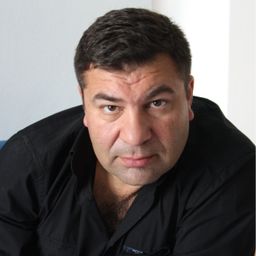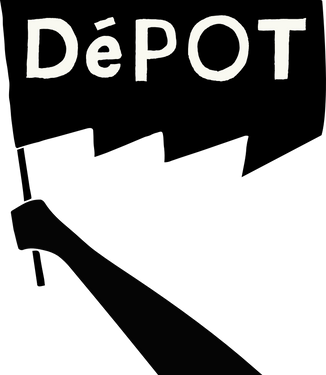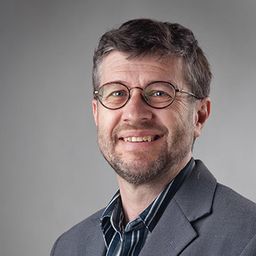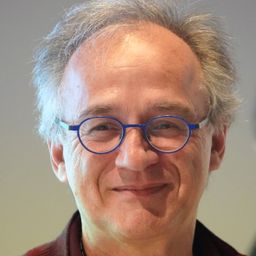
Rui Carvalho
Rui Carvalho is an architect specialising in the rehabilitation of architecture and urban centres. He began his career as a freelance architect and since 2004 he has been an architect in the Municipality of Mértola, in Portugal.
He is dedicated to the study of the urban and industrial mining heritage, viewing it not only as a historical legacy, but also as a spatial and narrative resource for tourism, cultural purposes, environmental and didactic reuses, and as it corresponds with the needs of contemporary society.
Rui prepared proposals for a plan to safeguard and value the historic mining urban core of the São Domingos Mine, in the Iberian Pyrite Belt (PT), and to delimit and classify the respective deactivated mining and archaeological area, later classified as a property of public interest as a mining heritage (2013).
He is currently developing a research project in a doctoral programme at the University of Seville, entitled “The Mining Cultural Landscape in the Chanza-Guadiana Border Territory (PT-ES)”.
Sessions in which Rui Carvalho participates
segunda-feira 29 agosto, 2022
In the cross-border region of Alentejo and Andalusia (PT-ES), in the space and environment at the confluence of the Chanza and Guadiana rivers, are located the abandoned mines of São Domingos and Las Herrerías (sec XIX-XX). The valuation of these territories is today an imperative for sustainability for communities and for the environment that were heavily affected by the impacts of intensive extraction and subsequent dismantling. In the global context of climate and environme...
Sessions in which Rui Carvalho attends
domingo 28 agosto, 2022
Join the conference organisers and TICCIH board members for a welcome cocktail and some festive words of introduction, in the former forge of the École technique de Montréal, founded in 1909, now part of the Université du Québec à Montréal campus.
segunda-feira 29 agosto, 2022
This session is about the “hard facts” of conservation. It aims to draw together technical knowledge from related fields. Industrial conservation specialists rely on specialised knowledge and may sometimes not be aware that there is expertise and proven good or best practice in related fields. The transferring of knowledge from related engineering, construction preservation and architectural conservation specialists can serve the purpose of promoting and securing future preservation of ...
In a traditional Quebec sugar shack atmosphere, enjoy a maple taffy rolled on snow in the purest tradition, accompanied by music of the occasion!
Si la vallée du canal de Lachine a été le berceau de l’industrialisation canadienne, la géographie industrielle métropolitaine ne s’y est pas confinée, peu s’en faut, Outre les grandes concentrations d’entreprises des quartiers centraux, elle est constituée des réseaux infrastructuraux, d’une douzaine de centrales hydroélectriques et des ensembles manufacturiers disséminés dans une quinzaine de petites villes aujourd’hui intégrées dans l’aire métropolitaine. La conférence proposera un surv...
Join us for an informal continuation of the discussion started with the public lecture.A drink will be offered to the first fifteen people.
terça-feira 30 agosto, 2022
This session focuses on company towns from the perspective of urban planning. “Company towns” are here defined as single-enterprise planned communities, usually centered around a single industry, where a company commissions an urban plan, builds housing for its workers, and sets up recreational, commercial, institutional or community facilities. While these are now endangered by a second wave of deindustrialization, we observe that, aside studies or monographs of individual towns that popu...
According to Rodney Harrison, “in the spirit of greater cross-disciplinary engagement, there is […] a pressing need to pay more attention to non-anglophone (and, indeed, non-Western) heritage literatures, histories and traditions” (2013: xiii), when we deal with critical approaches to heritage. This need is even greater when the scientific research focuses on countries such as Romania, Czechia, Bulgaria or Poland where Industrial Heritage, for example, is ignored and where the mechanism an...
During the Industrial Revolution coal was the most important energy source for both homes and industries. At the time, coal mining created strong regional industrial identities and mentalities, as well as industrial images and imaginaries in the eyes and minds of external observers. Such identities and ideas of coal would go on to shape industrial landscapes and communities.The papers presented in this session investigate the s...
Industrialization processes have been global from their very beginning. However, their interpretation still tends to be limited to specific locations or regions, and to specific time periods. Regularly, for example, it is stated that the industrial revolution started in Europe, from where it spread to the world, supposedly bringing technological and social progress to „less developed“ countries. Earlier periods of technology and knowledge transfer processes, that were already in place in t...
During this lunch break, you can come and discuss with the author about his most recent book.This is happening at the DePOT Table in the main hall of the conference. DePOT refers to the group "Deindustrialization and the Politics or our Time"; DePOT examines the historical roots and lived experience of deindustrialisation as well as the political responses to it. It is a SSHRC Partnership project consisting of 33 partner organizations and 24 co-applicants and collaborators from six ...
As a "continent” country, in which industrialization began as early as the 19th century, Canada has seen through deindustrialization and urban redevelopment, parts of this heritage have been either altered or destroyed. Yet, Canada still possesses a very significant industrial heritage. With Canada being a confederation, approaches to the protection and the safeguard of its industrial heritage differs throughout the provinces and territories of the country. The same is true of i...
This session will allow us to explore, through nine international case studies, the different strategies for the development of industrial heritage as well as their impacts on communities and their territory. The analysis of museums, cultural spaces, itineraries and urban developments will be an opportunity to highlight the questions of identity, meaning, relevance and impact that animate all the actors of this heritage in transformation.
Efforts to preserve industrial heritage occurs in a socio-economic and political context. But what is being preserved and for whom? And, relatedly, what is the relationship between industrial heritage sites and the deindustrialized working-class communities that often adjoin them? The keynote will consider the ways that the preservation of Montreal’s Lachine Canal, Canada’s premier industrial heritage site, has enabled gentrification processes that have forc...
Join us for an informal continuation of the discussion started with the public lecture.A drink will be offered to the first fifteen people.
quarta-feira 31 agosto, 2022
Visit of the permanent exhibition : À cœur de jour, grandeurs et misères d'un quartier populaire, which traces the history of one of the oldest industrial and working-class neighborhoods in Montreal. Discovery of the old Généreux bathhouse, a building that recalls a time when most working-class dwellings had neither bath nor shower. Presentation of some elements of the neighborhood's heritage on the way between UQAM and the Écomusée.The visit will be guided in French by René Binette...
The legacy of open pit mining in general, and in the landscape of the Lusatian lignite district in Germany in particular, is a recultivated, restored, man-made, technogenic landscape. However, the future post-mining land uses in Lusatia must be understood as an opportunity that enables future-oriented land use not only from a technological-scientific and economic basis, but also from a social and especially cultural perspective. Therefore, the currently often negatively described Lusatian ...
L’activité industrielle est un puissant facteur de concentration de population. En témoignent les sites antiques ou médiévaux étudiés par les historiens, souvent proches des mines, des carrières ou des chantiers de construction. À partir du XVIIIe siècle, cependant, avec les premiers développements industriels, des liens forts se tissent entre les usines et diverses formes d’urbanisation. De la variété de rapports que construit l’industrie avec la ville ou, plus largement, avec les lieux d...
This session brings together a set of studies focused on the uses adaptative reuses (and even replications) of industrial heritage in the larger context of its urban and social landscapes. Urban industrial memory, its social and territorial impacts, as well as its conservation and promotion, will be discussed from a variety of case studies ranging from Central and Southern Europe to Turkey, China and North America. The interdisciplinary approaches underlying each of the studies will also b...
The Global and Local Section of TICCIH aims to continue its collaborative work by organising a separate session within the framework of the 18th congress in Montreal, Canada. Following its previous sessions centred on various subjects at the Freiberg, Tampere, Taipei and Lille TICCIH conferences, this time the Section will focus on the identity of industrial civilisation in the post-communist countries in Central and Eastern Europe from the angle of its industrial heritage, lost or preserv...
This session addresses a perpetuating disjunction between conceptualisation of heritage and heritage making in heritage studies vis-a-vis heritage management and conservation of industrial heritage sites. There is an inevitable impact of this disjunction on advancing policy in people- and place-centred approaches to heritage futures. This session aims to explore ways in which tangible and intangible traces of the past can be utilised creatively in shaping desirable places to dwell and work...
Rome Reloaded. Or Industrial Heritage Meets the ArtsSince the end of the Industrial Age, the treatment of its heritage has changed from demolition to preservation (Kierdorf/Hassler 2000). In Rome—which is usually not perceived as an industrial city—, over 60 related examples (Torelli Landini 2007) offer a wide field of research regarding visions for its future. Recently, the challenges to reload those artefacts have been accepted also by foreign...
This tour offers an excursion on a privatized deck of Montreal's bateau-mouche; a playful guided tour that takes in some of the city's industrial landmarks from the St. Lawrence River.The tour is priced to cover additional costs; the fee includes access to the bateau-mouche, the tour and a drink.Departure will be on foot from the conference venue; boarding is at 3:45 p.m. at the l...
In this lecture, I would like to talk about deindustrialised communities, heritage and memory in the context of right-wing populism. Drawing on studies of memory and heritage, I argue that right-wing populists have cornered the market on talking about the past of deindustrialised communities. They have successfully misrepresented this rich and complex history to fuel rage, resentment, fear and reactionary nostalgia. Indeed, ‘the past’, and in particular the industr...
Join us for an informal continuation of the discussion started with the public lecture.A drink will be offered to the first fifteen people.
quinta-feira 1 setembro, 2022
From its construction to its restoration, immerse yourself in the now and then of this key Canadian industrial heritage site. A country’s central maritime route, a major inland port, the Canadian Lowell (using hydraulic power), the cradle of industrialization, Smokey Valley (using steam), a manufacturing hotspot, the Lachine Canal is all of this and more. For it is also a national historic site, for which
Examples from several continents, in Europe, South America, North America, Turkey, show strong continuity in the objectives that govern the reuse of industrial buildings, for example the concern to take into account the industrial heritage as a resource for urban and territorial development, or the close links that it has with culture, whether it is used to house cultural facilities or more simply to bear witness to the history and memory of the place. Increasingly, policies for the reuse ...
Si le blé occupe une place mythique dans l’histoire de l’industrie au Canada, le pain et la boulangerie n’ont pas suscité le même intérêt. Témoin de l’époque artisanale, puis de l’industrialisation, le secteur du pain connaît aujourd’hui un retour à des modes de production préindustriels, dans la foulée de la « glocalisation » qui caractérise plusieurs produits alimentaires. Les études consacrées à la fabrication du pain se sont surtout intéressées au monde rural et à l’époque préindustrie...
Transportation and distribution have served as the secondary component to significant industrial expansion after energy and power transformed modes of production. Expanding production permitted increases in output demanding a means to both bring new materials into industrialized regions and export products to markets. Canals and shipping provided the earliest forms of bulk transportation but were limited by capacity, geography, and envir...
This session addresses a perpetuating disjunction between conceptualisation of heritage and heritage making in heritage studies vis-a-vis heritage management and conservation of industrial heritage sites. There is an inevitable impact of this disjunction on advancing policy in people- and place-centred approaches to heritage futures. This session aims to explore ways in which tangible and intangible traces of the past can be utilised creatively in shaping desirable places to dwell and work...
Meet the authors Heike Oevermann and Mark Watson, who together with Bartosz Walczak completed the TICCCIH comparative thematic study: “The Heritage of the Textile Industry” (Lodz, 2022),It may be downloaded free here: The Heritage of the Textile Industry (lodz.pl) or
This lecture will argue that the landscapes of industrial heritage that can be found in different parts of the world are directly related to the place-specific trajectories of deindustrialization. In other words: the different ways in which deindustrialization impacts on local communities has a direct bearing on the emergence of forms of industrial heritage. I will differentialte between deindustrialization paths and related industrial heritage regimes in a) Anglo-...
The South Central district is a former industrial and working-class neighbourhood with a rich and unique heritage. The visit will allow us to discover, among other things, the Macdonald Tobacco factory and the Raymond candy factory, the old workers' housing typical of the district, and the reuse of old buildings for cultural and community purposes. The activity will start at the Frontenac metro station and will end with a visit to the Écomusée du fier monde. Staff will be avail...
sexta-feira 2 setembro, 2022
Walkers will meet at the entrance (there is only one) of Lionel Groulx Metro and from there walk along the canal to the St-Gabriel Locks. This was once the most heavily industrialized area in Canada. It is now a zone of affluence between the hardscrabble, but now gentrifying, Point Saint-Charles, historically Irish and French, and Little Burgundy, one of Montreal's first multi-racial neighbourhoods. Several former factories were converted into condominiums in the...
In this meeting, TICCIH representatives from around the world will present work in the field of industrial heritage in their respective countries. The presentations are based on the national reports that TICCIH has gathered for the 2022 World Congress, but may emphasize particular matters. These can range across several fields where industrial heritage plays a role – from academic research and other forms of knowledge production, to heritage management a...
In this meeting, TICCIH representatives from around the world will present work in the field of industrial heritage in their respective countries. The presentations are based on the national reports that TICCIH has gathered for the 2022 World Congress, but may emphasize particular matters. These can range across several fields where industrial heritage plays a role – from academic research and other forms of knowledge production, to heritage management a...
At every World Congress, the international TICCIH community celebrates a General Assembly of its members. The event is open for any registered member of TICCIH, as well as the wider public. According to the current TICCIH Statutes (https://ticcih.org/about/statutes/), however, only Na...
In the refusal of people in communities abandoned by industrial capital to abandon their own places, we can read an implicit critique of the mobility and unaccountability of capital, raised by those who were once inside (however tenuously or uncomfortably) and now find themselves marginalized, “left behind.” The desire to catch up again, whether through attracting new investment or transvaluing abandoned sites as tourist attractions, makes this an essentially conservative critique that is ...
Come and share the good times of the congress and celebrate your scientific and professional discoveries in a former fruit jam factory, Usine C, built in 1913 and transformed at the end of the 1970s into a place for creation and dissemination.Discover Montreal's gastronomy thanks to an exceptional caterer. Learn about Montreal's musical heritage and the history of the industrial district that brought it to life. Then hear and experience Quebec's musical tradition as you are carried ...
sábado 3 setembro, 2022
Uncover the vestiges of the Canadian Pacifie Railway tracks and the former Angus Shops, which played integral raies in the industrial and residential development of Rosemont. This tour wi/1 give you insight into the industrial past of the neighbourhood and its new life bath as a place to live and to work.A tour designed and guided by Heritage Montreal. Departure at the corner of Rachel and Dézéry streets, 10 minutes walk from Prefontaine metro station











